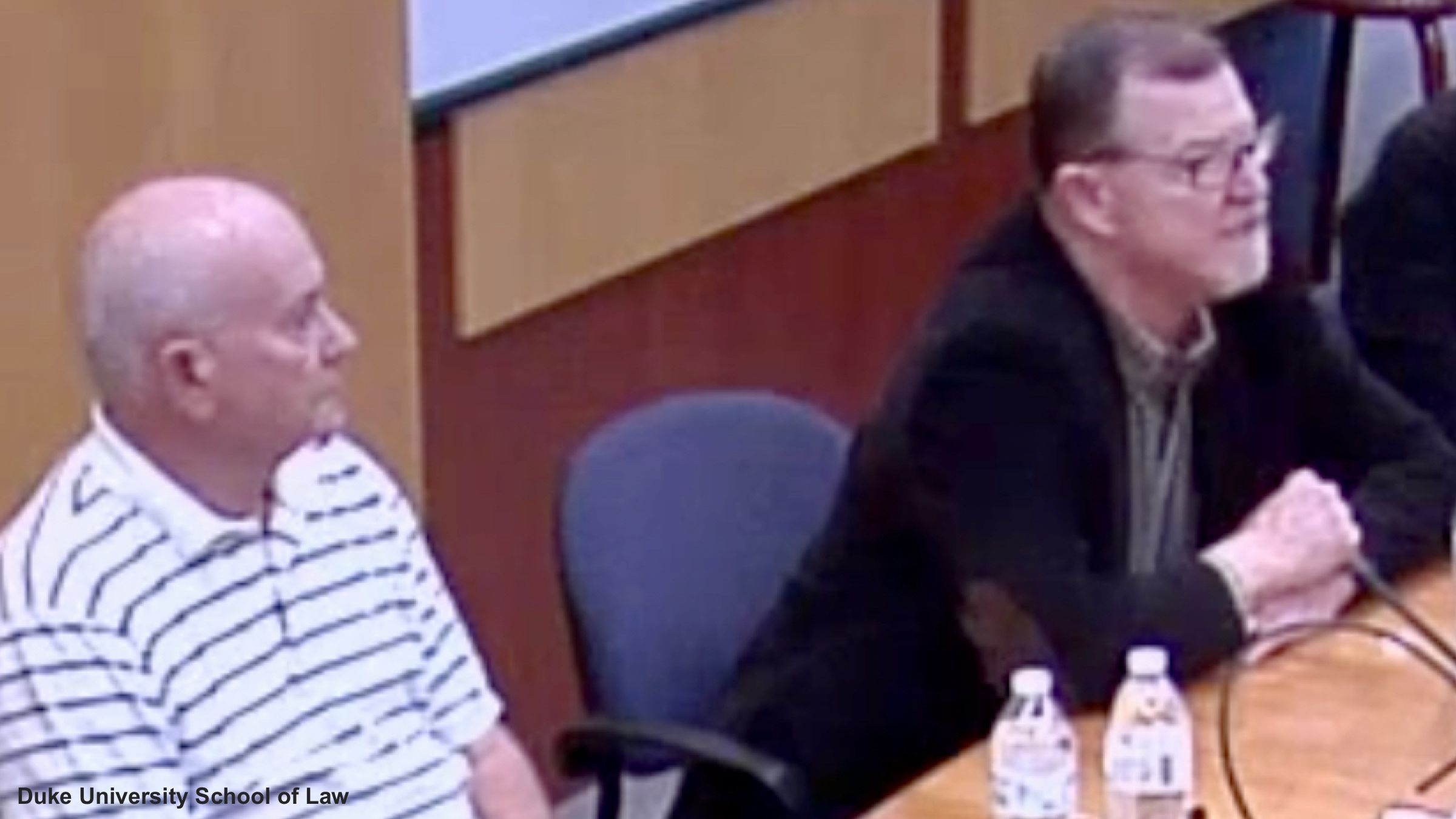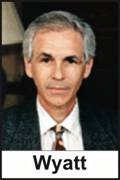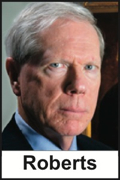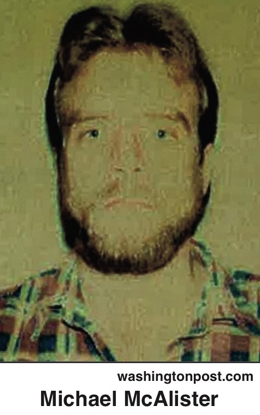Rascals case in brief
In the beginning, in 1989, more than 90 children at the Little Rascals Day Care Center in Edenton, North Carolina, accused a total of 20 adults with 429 instances of sexual abuse over a three-year period. It may have all begun with one parent’s complaint about punishment given her child.
Among the alleged perpetrators: the sheriff and mayor. But prosecutors would charge only Robin Byrum, Darlene Harris, Elizabeth “Betsy” Kelly, Robert “Bob” Kelly, Willard Scott Privott, Shelley Stone and Dawn Wilson – the Edenton 7.
Along with sodomy and beatings, allegations included a baby killed with a handgun, a child being hung upside down from a tree and being set on fire and countless other fantastic incidents involving spaceships, hot air balloons, pirate ships and trained sharks.
By the time prosecutors dropped the last charges in 1997, Little Rascals had become North Carolina’s longest and most costly criminal trial. Prosecutors kept defendants jailed in hopes at least one would turn against their supposed co-conspirators. Remarkably, none did. Another shameful record: Five defendants had to wait longer to face their accusers in court than anyone else in North Carolina history.
Between 1991 and 1997, Ofra Bikel produced three extraordinary episodes on the Little Rascals case for the PBS series “Frontline.” Although “Innocence Lost” did not deter prosecutors, it exposed their tactics and fostered nationwide skepticism and dismay.
With each passing year, the absurdity of the Little Rascals charges has become more obvious. But no admission of error has ever come from prosecutors, police, interviewers or parents. This site is devoted to the issues raised by this case.
On Facebook
Click for earlier Facebook posts archived on this site
Click to go to
Today’s random selection from the Little Rascals Day Care archives….
Click for earlier Facebook posts archived on this site
Click to go to
Today’s random selection from the Little Rascals Day Care archives….
‘I walked into FREEDOM….’

Bob Kelly, left, and Mark Montgomery at Duke Univerisity School of Law on Feb. 18, 2019.
Sept. 22, 2020
A burst of sunshine in these grim times. A note arrived today from Little Rascals Day Care case exoneree Bob Kelly: “Today, 25 years ago, because of Mark Montgomery’s wonderfully written and argued brief, I walked into FREEDOM…. Thanks to him and people like you who have believed in us!”
Forensic evaluator or therapist? A distinction not made
 March 23, 2012
March 23, 2012
“A given professional must undertake either a forensic examination or therapy, not both, with any given child.
“The roles of forensic evaluator and ongoing therapist are different. The forensic evaluator must not become an advocate for the child, a role often difficult to avoid when one is an ongoing therapist.
“For this reason the American Psychological Association’s Guidelines for Psychological Evaluations in Child Protection Matters (1999) holds, ‘Psychologists generally do not conduct psychological evaluations in child protection matters in which they serve in a therapeutic role for the child or the immediate family or have had other involvement that may compromise
their objectivity.’ ”
– From “A Behavior Analytic Look at Contemporary Issues in the Assessment of Child
Sexual Abuse” by W. Joseph Wyatt in The Behavior Analyst Today (March 22, 2007)
By serving enthusiastically as agents of the prosecution, Betty Robertson, Judy Abbott, Susan Childers and Michele Zimmerman not only ignored that crucial ethical distinction, but also fostered psychological havoc where there had been none.
Did prosecutors sell out for name recognition?
 Nov. 12, 2012
Nov. 12, 2012
“It is not conceivable that any of the prosecutors (in cases such as Little Rascals) believed a word of the charges responsible for ruining the lives of so many people. The cases were brought for one reason alone: to gain name recognition for the prosecutors.”
– From “The Tyranny of Good Intentions: How Prosecutors and Bureaucrats Are Trampling the Constitution in the Name of Justice” by Paul Craig Roberts and Lawrence M. Stratton (2008)
Could prosecutors really have sold their souls (not to mention their public trust) for mere “name recognition”? Or did their lust for guilty verdicts blind them to the obvious?
Most days, the latter seems more likely to me. Or perhaps a hybrid….
Indisputably, however, career benefits did attach to trumpeting from the courthouse steps that you’ve sent away Bob Kelly for 12 consecutive life sentences.
Lack of DNA evidence opens way for injustice
 April 18, 2015
April 18, 2015
“DNA testing has been used 329 times now to prove the innocence of people wrongly convicted of a crime. But what happens when there is no DNA evidence to prove someone’s innocence? What happens when there is only his word, and the mounded doubts of the team that prosecuted and convicted him? And what happens when – despite growing certainty that it has imprisoned the wrong man for more than 20 years – the Commonwealth of Virginia stands poised to keep him locked up, possibly forever?
“Of all the maddening stories of wrongful convictions, Michael McAlister’s may be one of the worst. For starters, he has been in prison for 29 years for an attempted rape he almost certainly did not commit….”
– From “This Man Deserves a Pardon” by Dahlia Lithwick at Slate (April 13)
Michael McAlister’s story surely qualifies as “one of the worst,” but forgive me if I think Junior Chandler – coincidentally now serving his 29th year of imprisonment – has suffered every bit as much injustice. And in McAlister’s case at least a crime was actually committed, just not by him.











0 CommentsComment on Facebook